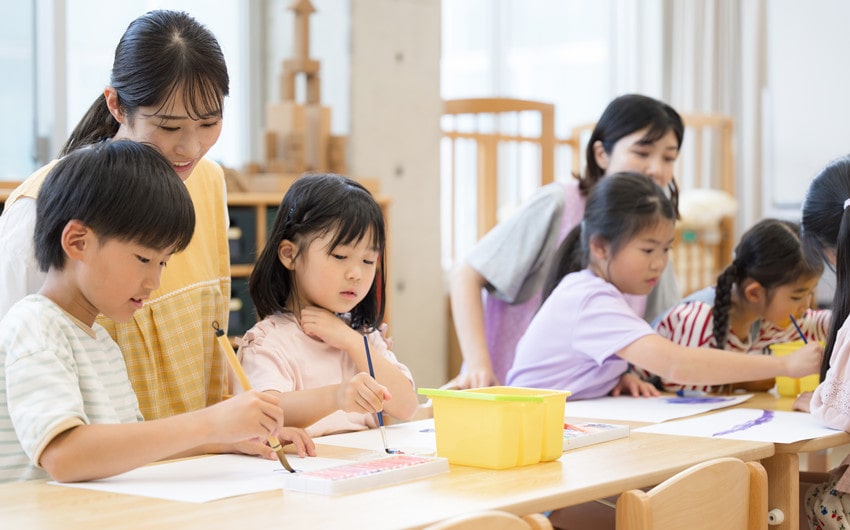How a Daycare Is Not Only a Relief for Parents But Also Beneficial for a Child’s Social Development
Choosing a daycare is a significant decision for working parents. It’s not just about finding a safe place where children can stay during work hours—it’s about ensuring they thrive in an environment that fosters growth, learning, and social skills. While many parents focus on the practical benefits of daycare, such as convenience and structured care, one of the most overlooked advantages is how it shapes a child’s social development.
The role of daycare in social development
Social development is a crucial aspect of early childhood education. It involves learning how to interact with peers, understanding social norms, and developing key communication skills. Daycare plays an integral role in this process by providing opportunities for children to engage with others in a structured yet nurturing setting.
Key benefits of daycare for a child’s social development:
✔ Improved communication skills – Children learn to express themselves clearly and understand others.
✔ Stronger emotional intelligence – Recognizing and managing emotions is an essential life skill.
✔ Better conflict resolution – Learning to share, compromise, and resolve disagreements positively.
✔ Building friendships – Early social interactions create the foundation for lifelong relationships.
Through structured play, group activities, and guided learning, daycare helps children develop these skills in a natural and supportive environment. Enrolling a child in Active Start Childcare offers more than just peace of mind for parents. It provides a structured environment where children learn essential social skills, build friendships, and develop emotional intelligence from an early age. These foundational skills are critical as they prepare for school and later life.
How daycare supports emotional growth
In addition to social skills, daycare plays a critical role in emotional development. Young children experience a range of emotions daily, and understanding how to manage them is essential. In a daycare setting, children encounter different situations that help them navigate their feelings.
Ways daycare enhances emotional development:
• Encouraging children to express their emotions in a healthy way.
• Teaching patience, resilience, and empathy.
• Providing a supportive environment where children feel safe to explore their feelings.
Caregivers and educators at daycare centers are trained to guide children through emotional challenges, helping them build confidence and self-regulation skills.
Learning independence and responsibility
One of the biggest adjustments for children entering school is learning independence. Daycare acts as a bridge between home and school by fostering a sense of responsibility.
At daycare, children:
• Learn daily routines and schedules.
• Take responsibility for small tasks like cleaning up after playtime.
• Make choices, such as selecting activities or engaging with different playgroups.
These early lessons in independence set the stage for future academic and personal success.
Exposure to diversity and inclusivity
A daycare environment introduces children to diversity in a way that home settings may not always provide. They interact with children from different backgrounds, cultures, and family structures, fostering a sense of inclusivity and broadening their perspectives.
Benefits of early exposure to diversity:
✔ Encourages acceptance and respect for differences.
✔ Helps children develop cultural awareness.
✔ Promotes a more inclusive mindset from an early age.
By experiencing diversity early on, children become more adaptable and open-minded, qualities that benefit them throughout life.
Preparing children for school and beyond
Daycare serves as a crucial stepping stone for school readiness. Beyond social and emotional skills, it also enhances cognitive abilities by introducing structured learning activities.
Daycare prepares children for school by:
• Teaching basic problem-solving skills.
• Encouraging curiosity and a love for learning.
• Helping children adapt to a structured environment with rules and expectations.
Studies show that children who attend daycare are often better prepared for the academic and social demands of kindergarten compared to those who do not.
Supporting parents while nurturing children
For working parents, daycare is a vital support system. It allows them to focus on their careers while knowing their child is in a safe, enriching environment. The benefits extend beyond convenience—daycare actively contributes to a child’s holistic development.
By enrolling in a quality childcare center, parents provide their children with a strong foundation for social and emotional growth, independence, and future success.







